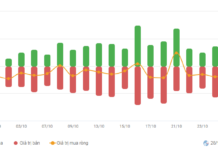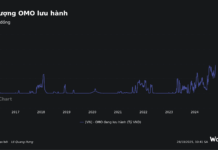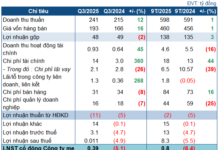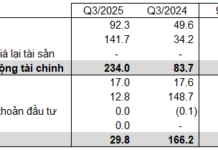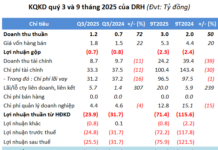What Do Banks Say?
Following the Government Inspectorate’s Conclusion 276, which highlighted several violations in the use of bond capital by some banks, multiple institutions have responded.
VPBank confirmed the issuance of 7 bond lots (in 2016, 2021, and 2022). According to their explanation, at the time of issuance, the bank had no new medium and long-term disbursements. To “optimize” capital, the bank used these funds for 12-month loans. When these loans matured, VPBank continued to use the funds for their intended medium and long-term purposes. The bank stated it has implemented measures to segregate bond mobilization accounts on its system and has improved information disclosure in compliance with regulations.

Commercial banks have been actively raising capital through bond issuances in recent years.
Meanwhile, MB stated that at the time of the review, the bank was prioritizing lending. MB affirmed that this aligns with the disclosed content and scope (serving credit needs). According to the bank, the mentioned bond lots have fully met their obligations; most have been settled, and the remaining amount (approximately 650 billion VND) is being managed in compliance with regulations.
OCB Bank also issued a response regarding the inspection conclusion. Throughout the issuance and use of bond capital for business operations, the bank has consistently fulfilled its information disclosure obligations and timely principal and interest payments to investors.
“For some past errors, OCB has reported and provided detailed explanations of the causes, addressing them immediately upon request,” OCB stated.
Transparency Needed to Avoid Systemic Risks
Data from the Vietnam Bond Market Association in September recorded that the leading bank in bond issuance reached over 17,000 billion VND. Cumulatively over the past 9 months, corporate bond issuance totaled approximately 398,000 billion VND. Banks accounted for 73% of this, followed by real estate, securities, and manufacturing.
MB led in mobilization through this channel with 6,000 billion VND, followed by LPBank, ACB, and HDBank. Due to the need for medium and long-term capital, bank bonds typically have maturities exceeding 3 years.
Speaking with Tiền Phong, economist Đinh Trọng Thịnh noted that banks’ recent push for long-term bond issuances reveals certain inadequacies in capital use objectives and risk management.
Mr. Thịnh analyzed that, in principle, long-term bond issuance aims to raise stable capital for medium and long-term loans. However, in practice, many banks use this capital for short-term loans, misaligning funding objectives. “Ideally, short-term bonds should be issued to match operational realities. Issuing long-term bonds for short-term loans is inconsistent and poses maturity mismatch risks,” he said.
The expert explained that due to the gap between issuance and loan maturities, banks must “manipulate” bond instruments, complicating trading and transfers. “Many banks alter short-term bonds to appear different in duration or issue them flexibly for easier sales. This creates oversight loopholes,” Mr. Thịnh observed.
Legally, Mr. Thịnh noted that while regulations exist, they remain inadequate, especially in managing post-issuance capital use. “Issuing regulations is easy, but enforcement and control are challenging. Authorities must understand the true nature of banks’ bond products to prevent distortions,” he added.
Notably, banks are the largest bond issuers in the market, surpassing even real estate companies.
“If issuances are unchecked in purpose and cash flow, liquidity risks may rise at maturity. Banks should focus on short-term bond issuances, ensuring transparency in purpose and transferability, making this a safe funding channel rather than a systemic risk,” Mr. Thịnh warned.
Corporate Bond Market Reshaping Amidst Turbulent Shifts
The corporate bond market is undergoing a significant reshaping following a period of intense volatility, according to Nguyen Minh Duc of S&I Rating. While the real estate sector continues to experience high default rates, the introduction of a new legal framework and mandatory credit rating requirements are expected to enhance transparency, bolster investor confidence, and unlock new growth opportunities for the market.
The Perplexing Puzzle of Corporate Bond Investment for Individual Investors
The proposed regulation by the Ministry of Finance has caused concern among investors, with requirements for professional individual investors to have a minimum of two years of securities investment experience, a portfolio of at least VND 2 billion, and an annual income of VND 1 billion in the last two years to be eligible for bond market participation.


